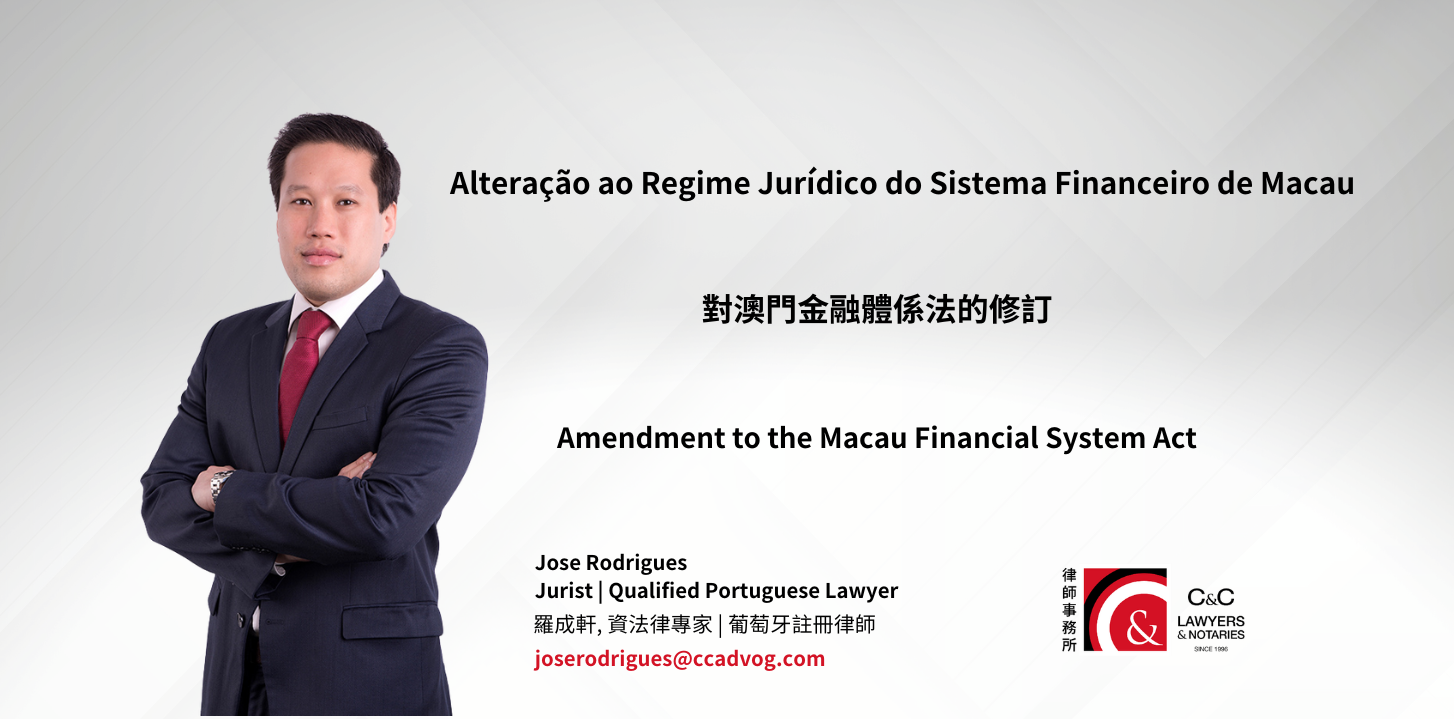
Decree-Law no. 32/93/M, of 5 July, as amended from time to time, establishes the Macau Financial System Act (the “FSI”) as the main piece of legislation to be considered by any (prospective) operator in the finance & banking industry who intends to operate in Macau. It will soon be subject to substantial changes.
The Legislative Assembly has already voted in general by the plenary and approved the new law (“Law”) that will amend the FSI. The draft of the Law will be subject to further vote and approval in the specialty and publication. No dates are set for the special voting and publication, meaning that relevant operators may still rely on the current FSI. However, we must remember that new rules will soon enter into force, which must be considered before and while operating in Macau’s banking and finance industry.
The current draft of the Law, once enacted, will introduce changes to the following areas:
The Law aims to make the licensing procedure more flexible by implementing a new type of license – “bank with restricted scope of activity” license – among other measures.
This will allow the Macau Monetary Authority (“AMCM”) and ultimately, the Chief Executive, to better assess the specific scope of activity of the applicants’ proposal and perform the corresponding assessment.
Currently, all applications for a banking license are subject to one standard (the one applicable to the universal banking license), meaning that even if the applicants’ prospective activity is restricted, they will be subject to scrutiny based on the assumption that they will be a full-service bank. With this new type of license, the level of scrutiny will be adapted to the specific proposed activity of the applicant.
The public issuance of bonds will be streamlined. Currently, the procedure provided in the FSI (and ancillary laws and regulations) requires authorization from the Chief Executive. The Law cancels this requirement and provides for a registration-based procedure.
The Law also takes into consideration recent technological advances. To this effect, it introduces an entire section on fintech and allows non-financial institutions to hold a temporary license to perform activities connected to developing new technologies that will ultimately develop the financial industry.
Among other changes, the Law also increases the minimum share capital of banks, highlights the need to consider the shareholding structure and corporate governance when assessing license applications, clarifies aspects that have to be considered for applicants’ suitability and qualification, streamlines procedures about exemption requests for risk exposure calculations and reinforces sanctions applicable to violations.
It should be noted that the Law may still be subject to some changes before its approval in the specialty.